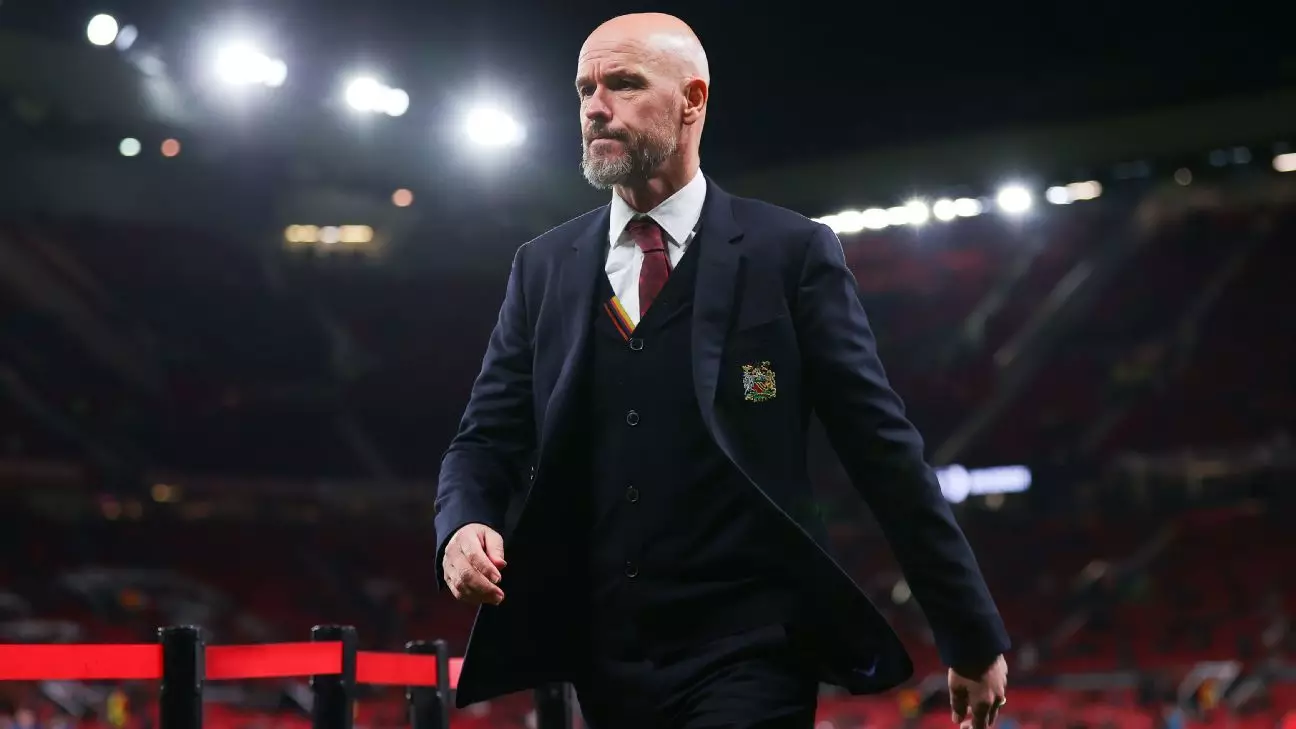Manchester United, a club steeped in history and tradition, prides itself on being one of the powerhouses of European football. With a legacy that boasts multiple Premier League titles and Champions League triumphs, the club’s aspirations are lofty. Yet, as it stands, they find themselves competing in the Europa League once again. The recent encounter with FC Twente showcased a team grappling with inconsistencies and the weight of expectation, raising questions about their current capabilities and future trajectory.
The Europa League: A Bitter Reality
For Manchester United, the Europa League has become an unwelcome yet recurring theme. The club’s performance on the European stage has regressed, and their recent 1-1 draw against FC Twente epitomizes the struggle they face. In a match that saw the Dutch side revel in their hard-fought point, it was clear that United’s display fell short of their own high standards. The cheerful reaction from Twente’s fans and players reflected their achievement, while the United supporters were left questioning the team’s direction.
This encounter was not merely a statistical draw; it underscored the vulnerabilities in United’s performance. FC Twente, not known as a European giant, capitalized on their opportunities, suggesting that United’s stature is currently not mirrored in their performance. Such matches often build a narrative that requires deeper introspection regarding the team’s resilience and ability to perform under pressure.
Erik ten Hag, now in his third year with Manchester United, finds himself at a critical juncture in his managerial career. What was once envisioned as a resurgence period has now devolved into a fight for stability. The recent result against Twente should serve as more than just a statistic—it acts as a litmus test for ten Hag’s leadership and strategic acumen. Furthermore, with crucial fixtures against Tottenham Hotspur, FC Porto, and Aston Villa looming on the horizon, the stakes could not be higher.
In his pre-match comments, ten Hag expressed his emotional ties to Twente and the challenge of facing his former club. However, this emotional reverence could not shield him from the harsh realities of defeat. His acknowledgment that the players lacked the necessary aggression and intensity speaks volumes about their mentality. The phrase “99% is not enough” embodies the culture he seeks to instill, where complacency has no place.
While defensive solidity is pivotal, attacking prowess is equally, if not more, crucial for United to claw their way back to the upper echelons of football. The team’s current goal output is concerning, with only five goals in five Premier League matches and just one strike against Twente. The disparity between chances created and goals scored illustrates a critical gap that must be addressed.
Ten Hag’s strategy of rotating players, including the notable inclusion of Rasmus Højlund and Mason Mount due to their return from injury, highlights his tactical flexibility. Yet, it also underscores a desperate need for his squad to connect and exploit scoring opportunities. For United to rediscover their form, they must foster a mentality driven by clinical finishing. Ten Hag’s insistence that the team needs to be more consistent reveals an underlying truth: the players must elevate their performances on a game-by-game basis.
Despite the disappointing situation, the Europa League could serve as a platform for Manchester United to regroup and refine their strategy. No longer can they see it as a consolation prize; instead, it must be perceived as an essential stepping stone. With no teams relegated from the Champions League in the new format, facing off against the likes of Tottenham and AS Roma in this competition becomes integral to their ambition.
As the season progresses, the United hierarchy and fans alike look toward qualification for next year’s Champions League. Achieving this goal, whether through the precarious Premier League battle or a potential Europa League victory, is imperative for reclaiming their status among European football’s elite. However, the road will be fraught with challenges, and ten Hag must navigate these waters astutely.
Ultimately, Manchester United’s current plight is a complex tapestry woven with ambition, struggle, and hope. Each match presents an opportunity for reflection, growth, and revival. For now, though, they must learn to embrace their position in the Europa League, as their legacy demands nothing less than a return to glory.

